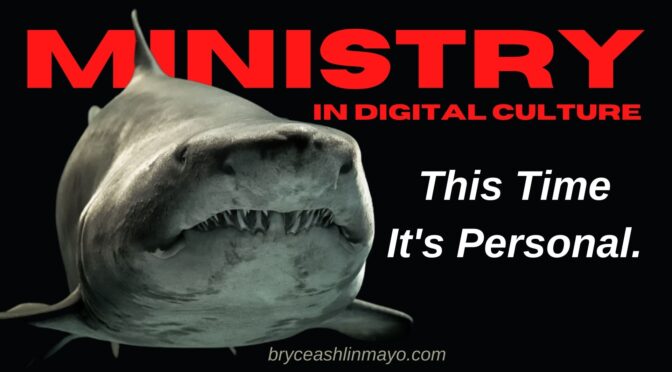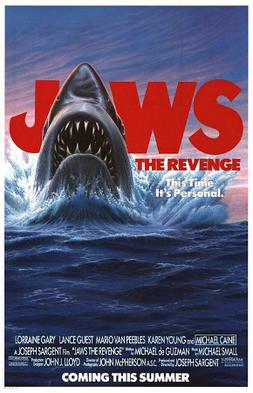Although Jaws IV is arguably the worst of the Jaws film franchise and worthy of our collective amnesia, its tagline has defied the fate of the film and remained in the cultural ether: “This Time It’s Personal.” This memorable line has permeated culture more than the scent of chum in water during shark hunting season.
This phrase also encapsulates the reality of digital technology and the times we are in. We live in the digital age of personalization where everything we do is customized to us. We have personalized home screens on our devices, personalized movie suggestions on Netflix, personalized stores on Amazon, personalized Apple/Spotify music channels and personalized newsfeeds. All of which have algorithms that curate the content we consume. Separate from the dangers of this (we’ll address them later), people increasingly expect a personalized experience in digital space. Unlike mass media where things were necessarily impersonal and generic, digital culture is incredibly personal and specific.
The personal nature of digital technology is partially why although people want to participate in the content they consume, they also prefer to wait in digital anonymity deciding if/when to step into digital view. Digital space is intimate space and deeply personal. Stepping into view means not just stepping out of anonymity but into intimacy. For example, when one comments on a video or live feed, it means linking their profile to their comment and exiting the comfort of (perceived) digital anonymity for the spotlight of digital intimacy. This is why digital space also provides the user with the unique ability to decide when and how known they want to be. This is a new [digital] cultural norm, and we need to recalibrate our means of engagement to adapt.
In digital culture, pastors and church leaders must provide increased space for people to feel comfortable online before an expectation of engagement. The challenge is, we are accustomed to impersonal communication and engagement with people in public in-person space that operated under a different social contract and norm. As a result, our in-person and mass media influenced strategies and methodologies were often depersonalized as a result. However, digital is different. It is highly personal and, by the very nature of digital, more intimate.
Therefore, as you consider your ministry, how can you make your preaching, communication, online interactions, etc. as personal as possible? How can you allow a safe initial engagement online to build trust and allow people a safe way to engage? How can your preaching become even more proprietary (personal) to your people? In other words, how can you make it more specific to your congregation as opposed to the generic forms of communication of mass media? How can your online communications and mailing lists be more personalized (MailChimp and others can do this)? How can your church advertising become more targeted and personal to the people you are trying to reach (all digital advertising, unlike mass media advertising, is personalized and targeted)? As we move increasingly into digital culture, we will need to make our ministries and communications more personal as we do.
As you explore this in your ministry, a warning. As Marshall McLuhan argues in his book Four Laws of Media (Technology), all media (technology) when taken to its extreme reverses on itself. This too is the danger of personalization. Taken to the extreme, we become addicted to personalization and it can fester into hyper-individualism and selfishness.
Unlike what online algorithms tell us, everything is not about us. One of the inherent dangers with the personalization of information, news, movies, music, etc. is that we begin to lose the skill of empathy and listening to others in the process. As you pursue increasing ways to personalize your ministry, be aware of this potential and protect against it. Teach about empathy, avoid ministry silos that can be common, intentionally breach the generational divide, etc.
There is another famous line from the original Jaws that is apt in this discussion, “You’re going to need a bigger boat.”
As we get a bigger boat online, may we be aware of our tendency to fill it with people just like us. May we be reminded that love suffocates in sameness. May we, in our desire for personalization, not lose sight of the mission that takes difference to accomplish.




